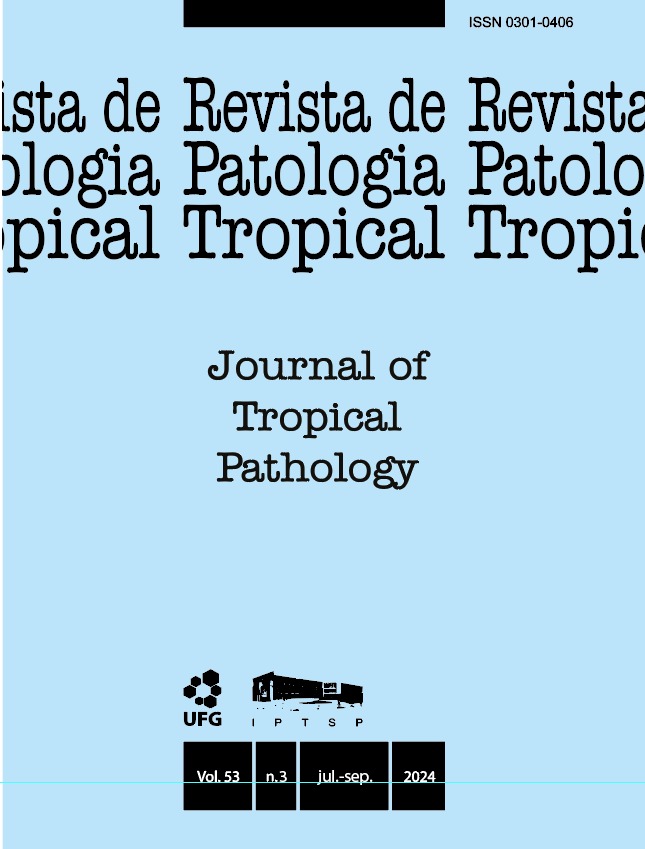The influence of the Covid-19 pandemic on the detection of leprosy: an overview of the state of Goiás, 2018-2021
DOI:
https://doi.org/10.5216/rpt.v53i3.79026Abstract
Leprosy is a neglected bacterial infectious disease with great disabling and stigmatizing potential. In Brazil, the difficulties imposed on diagnosis seem to have been exacerbated by the logistical obstacles caused by the COVID-19 pandemic. Therefore, this study aimed to analyze the impact of the COVID-19 pandemic on leprosy diagnosis indicators in Goiás. This is an ecological study based on the Notifiable Diseases Information System. All cases diagnosed and notified between 2018 and 2021 were considered for the following variables: date of notification, location, gender, age group, race, education level, clinical form, operational form and degree of physical disability at the time of diagnosis. Quantitative and comparative analysis was carried out, through the calculation of percentage variation, Chi-square or simple regression. Between the periods 2018-2019 and 2020-2021, no statistically significant differences were observed in the proportion of multibacillary cases, grade 2 physical disability at diagnosis and cases not assessed for physical disability. However, a percentage variation of -37.64% (p= 0.005) in general detection rates was found. The abrupt reduction in general detection rates in 2020 and 2021 indicates the worsening of underreporting of leprosy in Goiás during the pandemic. It is therefore necessary to improve active search and longitudinal monitoring actions in communities, in order to reach the most vulnerable and susceptible populations to leprosy.
KEY WORDS: Leprosy; epidemiological monitoring; underregistration; Covid-19; cross-sectional studies.
Downloads
Downloads
Published
How to Cite
Issue
Section
License
The manuscript submission must be accompanied by a letter signed by all authors stating the full name and email address, confirming that the material has not been published or is under consideration for publication elsewhere, and agreeing to transfer copyright in all media and formats for Journal of Tropical Pathology. The authors will not be paid for published articles. They are solely responsible for the content of those articles, even if the Editor holds the right to adjust them to the norms of the journal.
The reviewers will not be paid for the peer review process.

